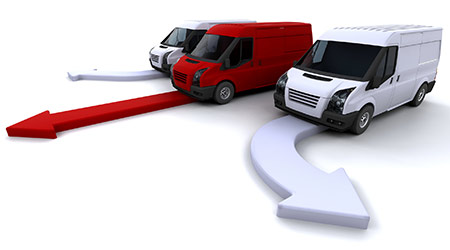
The professional cleaning industry spends more of its time traveling from one location to another than many of its members realize, according to Ron Segura, founder and president of Segura & Associates, a consulting company helping contract cleaning companies build their businesses.
"This means any way we can reduce fuel consumption not only helps promote sustainability, but it can also help reduce fuel costs significantly," says Segura.
In honor of Earth Day last week, Segura lists his top 12 unusual fuel savings ideas-unusual because they are less known or rarely used-for cleaning contractors to reduce fuel consumption, greenhouse gases, and costs:
1. Create a benchmark. Collect fuel receipts so you know the costs and how much fuel you are currently using.
2. Have the most fuel-efficient driver drive.
3. Avoid idling; idling can use a quarter to half a gallon of gas per hour.
4. On the highway, drive with traffic; many cars driving together can improve aerodynamics.
5. Minimize braking. "Drivers can waste more fuel hitting the brake pedal than the gas pedal," says Segura.
6. Avoid cruise control. In general, this feature is less fuel efficient than constant throttle driving.
7. Create a "chain of accounts;" fuel economy is enhanced by servicing buildings all in the same general area.
8. When driving on snow or ice, drive in the tracks of the vehicle just ahead of you to reduce rolling resistance.
9. Allow enough space between your car and the car in front of you so that you can change lanes quickly rather than brake if you need to slow down.
10. Use AC only when driving at high speeds; avoid turning on the AC during the first few minutes of driving, open the windows to let the hot air out first. Similarly, it can save fuel to wait for the engine to warm up before turning on the heater.
11. Avoid parking below buildings; pulling out and up means working against gravity which takes fuel.
12. Don't start up until you are ready to go. "Many cleaning workers resist beginning work until traffic has died down," adds Segura. "Instead of starting at 5 PM, just waiting until 6 PM can save fuel and save a lot of driving frustration."

 Celebrating BSCAI's 60th Anniversary eBook
Celebrating BSCAI's 60th Anniversary eBook The Down and Dirty on Cleaning in Virus Season
The Down and Dirty on Cleaning in Virus Season How Surfactant Use is Expanding in Commercial Cleaning
How Surfactant Use is Expanding in Commercial Cleaning